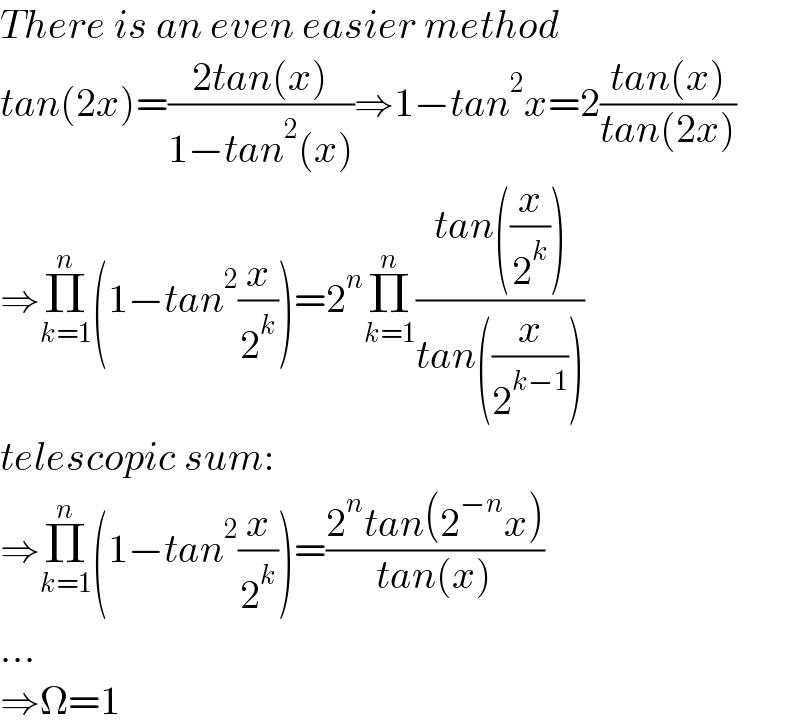
Question and Answers Forum
Question Number 155183 by mathdanisur last updated on 26/Sep/21

Answered by aleks041103 last updated on 26/Sep/21

Commented by aleks041103 last updated on 26/Sep/21

Commented by mathdanisur last updated on 26/Sep/21

| ||
Question and Answers Forum | ||
Question Number 155183 by mathdanisur last updated on 26/Sep/21 | ||
 | ||
Answered by aleks041103 last updated on 26/Sep/21 | ||
 | ||
| ||
Commented by aleks041103 last updated on 26/Sep/21 | ||
 | ||
Commented by mathdanisur last updated on 26/Sep/21 | ||
 | ||